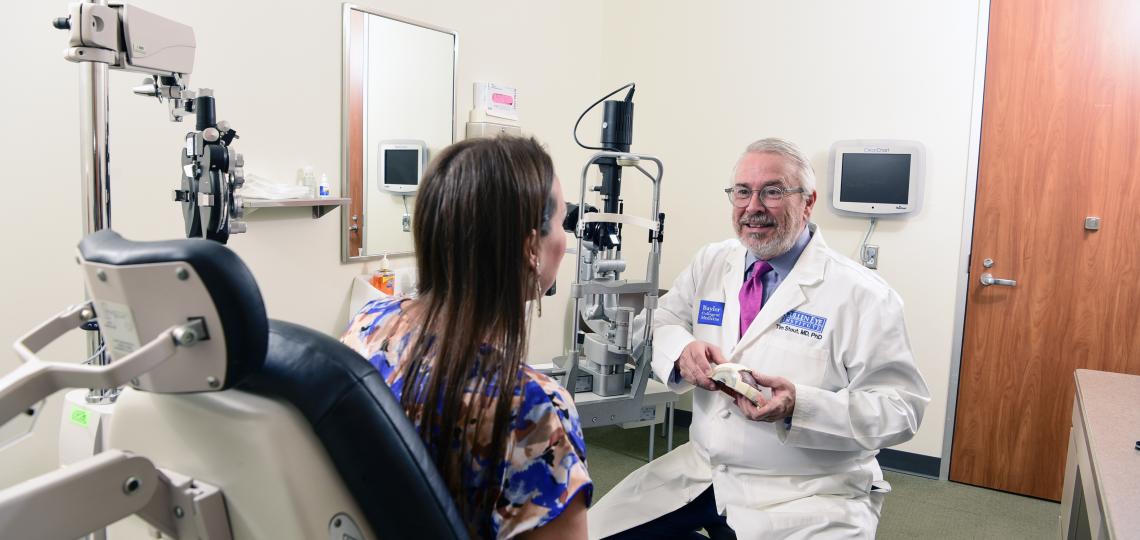Neurologist in Andalusia: Advanced Brain Health Solutions at Our Clinic
Wiki Article
Is Refractive Surgical Procedure Right for You? Elements to Take Into Consideration for Better Eyecare
In the world of eye treatment, the choice to go through refractive surgical procedure is a crucial one that requires thoughtful factor to consider. From the ins and outs of one's eye health and wellness to the ins and outs of everyday practices and personal expectations, each facet holds relevance in the wider landscape of refractive surgical treatment candidacy.Eye Health Evaluation
When considering refractive surgical procedure, a thorough eye health and wellness assessment is important to evaluate the viability of the treatment for every individual. eye center andalusia. This examination involves a collection of examinations and evaluations conducted by an eye treatment expert to determine the total health and wellness of the eyes, the presence of any kind of underlying problems, and the stability of the refractive mistakeDuring the evaluation, numerous elements are thought about, such as the individual's clinical history, existing eye prescription, corneal thickness, student size, and tear movie quality. These evaluations help to determine any contraindications to refractive surgical procedure, such as corneal abnormalities, cataracts, or unattended eye infections. Furthermore, the analysis assists to take care of client assumptions regarding the prospective end results of the surgery based upon their unique eye qualities.
Inevitably, the eye wellness evaluation is vital in making certain the safety and effectiveness of refractive surgical treatment, as it gives beneficial insights into the individual's eye health condition and assists figure out one of the most ideal therapy alternatives for attaining optimal aesthetic results. (andalusia pediatrics)
Way Of Life Analysis
A thorough way of living assessment is indispensable in identifying the viability of refractive surgical treatment for a person's visual improvement requirements. Way of life factors such as line of work, hobbies, and everyday tasks play an important role in the decision-making process pertaining to refractive surgical treatment.In addition, way of living behaviors such as sporting activities engagement, outside activities, or even skincare routines can affect the recovery process and overall success of refractive surgery. By conducting a comprehensive way of living analysis, eye care professionals can tailor their referrals and therapy plans to meet the one-of-a-kind demands of each individual, ultimately leading to improved aesthetic results and complete satisfaction.
Expectation Placement

Clients require to comprehend that while several individuals attain 20/20 vision or better complying with refractive surgery, some may still call for glasses for certain tasks like analysis or driving at night. Handling these assumptions helps stop disappointment and discontentment post-surgery, leading to an extra positive general experience for the person.
Risk Analysis

Aspects that might enhance the threat of complications consist of age, particular medical problems like autoimmune conditions, unsteady vision prescription, slim corneas, and unrealistic client assumptions. Additionally, selecting a seasoned and experienced specialist, adhering to pre and post-operative care directions faithfully, and disclosing any pertinent clinical history can help alleviate look at these guys threats.
To minimize the possibility of issues, eye doctors perform comprehensive pre-operative examinations to recognize any kind of contraindications to surgery. They also talk about the prospective dangers and advantages with people throughout the appointment procedure. By taking part in open interaction and shared decision-making, both the ophthalmologist and the client can interact to figure out if refractive surgical procedure is the appropriate selection based upon specific threat accounts and wanted end results.
Appointment Importance
Considering the critical role of educated decision-making in analyzing dangers and potential complications in refractive surgical treatment, the consultation procedure holds substantial value in click this link assisting clients towards optimal outcomes. Throughout the examination, the ophthalmologist evaluates the patient's eye wellness, refractive mistakes, and overall viability for surgical treatment. This preliminary assessment is critical in establishing the most suitable treatment for each person, thinking about elements such as corneal density, pupil size, and existing eye problems.Furthermore, the consultation acts as an opportunity for people to discuss their assumptions, worries, and any concerns they may have pertaining to the surgical treatment. Clear interaction between the surgeon and the individual is necessary to make certain sensible expectations and a detailed understanding of the potential threats and benefits included.
In addition, the examination permits the cosmetic surgeon to clarify the different surgical alternatives available, their particular end results, and the post-operative care called for. This comprehensive discussion encourages patients to make knowledgeable choices about their eye care, bring about better contentment and outcomes post-surgery.
Final Thought
To conclude, people considering refractive surgical treatment must undergo an extensive eye wellness analysis, evaluate their way of life habits, align their expectations with prospective results, assess the affiliated risks, and prioritize assessments with eye care experts. These aspects play a critical role in determining the suitability of refractive surgical treatment for every person, making sure ideal results and contentment with the treatment.Individuals taking into consideration refractive surgical treatment commonly have high assumptions relating to the browse this site results, expecting perfect vision without the demand for glasses or call lenses. While refractive surgical procedure can considerably enhance vision and decrease dependency on aesthetic help, it is important for clients to understand that outcomes might vary based on individual variables such as the level of refractive error, corneal density, and total eye health and wellness.
By engaging in open interaction and shared decision-making, both the individual and the ophthalmologist can work with each other to figure out if refractive surgical treatment is the right option based on specific risk profiles and preferred results.
Considering the important duty of notified decision-making in assessing dangers and potential difficulties in refractive surgical treatment, the consultation procedure holds significant value in directing people towards optimum outcomes. Throughout the consultation, the eye doctor evaluates the individual's eye health, refractive errors, and total suitability for surgical treatment.
Report this wiki page